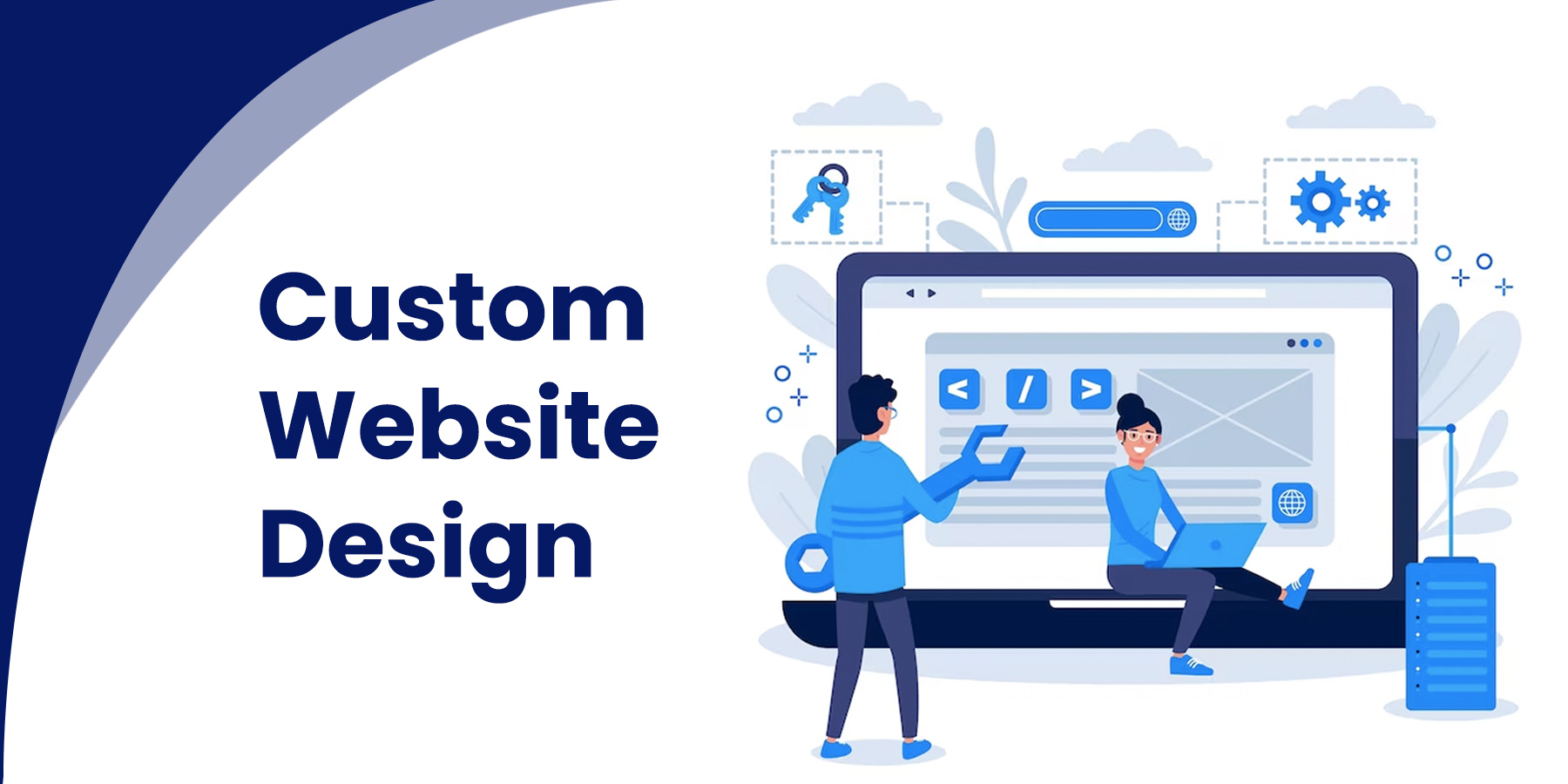The Role of Custom Website Design in Branding and Marketing
A well-crafted website serves as the virtual storefront for a business, offering a glimpse into its offerings, values, and personality. As such, custom website design plays a pivotal role in shaping a brand’s identity, conveying its message, and driving effective marketing strategies.
In this comprehensive article, we’ll delve into the significance of custom website design in branding and marketing, highlighting how it can elevate a brand’s visibility, user experience, and engagement.
Table of Contents
1. Establishing a Memorable First Impression
2. Reflecting Brand Identity and Values
3. Enhancing User Experience (UX)
4. Optimizing for Mobile Responsiveness
5. Supporting Search Engine Optimization (SEO)
6. Enabling Tailored Marketing Strategies
7. Showcasing Visual Storytelling
8. Fostering Trust and Credibility
9. Adapting to Evolving Trends
10. Standing Out in a Competitive Landscape
1. Establishing a Memorable First Impression
The saying “first impressions last” holds in the digital realm. When a user lands on a website, their initial impression is formed within seconds. A custom website design enables brands to create a unique and memorable first impression that resonates with their target audience. A brand can instantly convey its personality and values through carefully chosen color schemes, typography, and visuals, leaving a lasting mark on visitors.
2. Reflecting Brand Identity and Values
A generic website template might not effectively capture a brand’s essence. Custom design allows for intentional alignment with a brand’s identity and values. Elements such as logos, taglines, and brand colors can be seamlessly integrated, ensuring a consistent and cohesive representation across all touchpoints. This alignment fosters brand recognition and a deeper connection with the audience.
3. Enhancing User Experience (UX)
User experience is a cornerstone of effective and responsive website design. A custom website design considers the user journey, ensuring that navigation is intuitive, information is easily accessible, and interactions are engaging. A positive UX encourages users to spend more time on the site, explore its content, and take desired actions, ultimately contributing to improved conversion rates.
4. Optimizing for Mobile Responsiveness
A mobile-friendly, responsive website design is crucial in today’s mobile-first world. A custom website design allows brands to tailor their websites to different screen sizes and resolutions, ensuring a seamless experience across devices. This adaptability enhances user satisfaction and positively impacts search engine rankings, as mobile-friendliness is a key ranking factor.
5. Supporting Search Engine Optimization (SEO)
Search engine optimization (SEO) drives organic traffic to a website. A custom website design can be structured with clean code and optimized for speed, which is crucial for SEO success. Additionally, the ability to customize meta tags, headings, and content placement enables brands to align with targeted keywords, improving their visibility on search engine results pages.
6. Enabling Tailored Marketing Strategies
Marketing efforts are most effective when aligned with a brand’s unique offerings and goals. Custom website design allows for integrating marketing elements such as lead-generation forms, call-to-action buttons, and personalized content recommendations. These tailored strategies enhance user engagement and facilitate the conversion process.
7. Showcasing Visual Storytelling
A brand’s story is a powerful tool for connecting with its audience emotionally. Custom website design provides the canvas for visual storytelling through multimedia elements, such as videos, animations, and interactive graphics. By weaving a compelling narrative, brands can captivate visitors and forge a deeper bond.
8. Fostering Trust and Credibility
A professional and polished website design instills trust and credibility in visitors. Custom website design allows brands to create a professional image that aligns with their industry standards and audience expectations. This sense of authenticity encourages users to engage more deeply with the content and increases the likelihood of conversions.
9. Adapting to Evolving Trends
Digital trends and user preferences are constantly evolving. A custom website design is adaptable and can be updated to incorporate the latest design trends and technological advancements. Staying current ensures the brand’s online presence remains relevant and resonant with the ever-changing digital landscape.
10. Standing Out in a Competitive Landscape
In a crowded digital space, differentiation is key. A custom website design sets a brand apart from competitors that rely on generic templates. The design’s uniqueness captures attention and positions the brand as forward-thinking and committed to delivering exceptional user experiences.
Conclusion
The role of custom website design in branding and marketing is undeniable. A custom website design is a brand’s digital identity cornerstone, from shaping first impressions to fostering trust and enabling tailored strategies.
By investing in a design that reflects its values, resonates with its audience, and adapts to evolving trends, a brand can effectively navigate the digital landscape, stand out from the competition, and create a lasting impact.
If you are looking for the best maintenance, customization, and web design services, WPNinjas is here for you. Contact our expert team today to discuss how we can help enhance your WordPress website.

Kimberly Morrison
Kimberly Morrison has been the Director of Client Relations at VGROW since 2019. She builds strong customer relationships, drives client retention, and oversees team productivity. Kimberly's approach to customer engagement is key to VGROW's aim of streamlining business processes through virtual assistance services.



